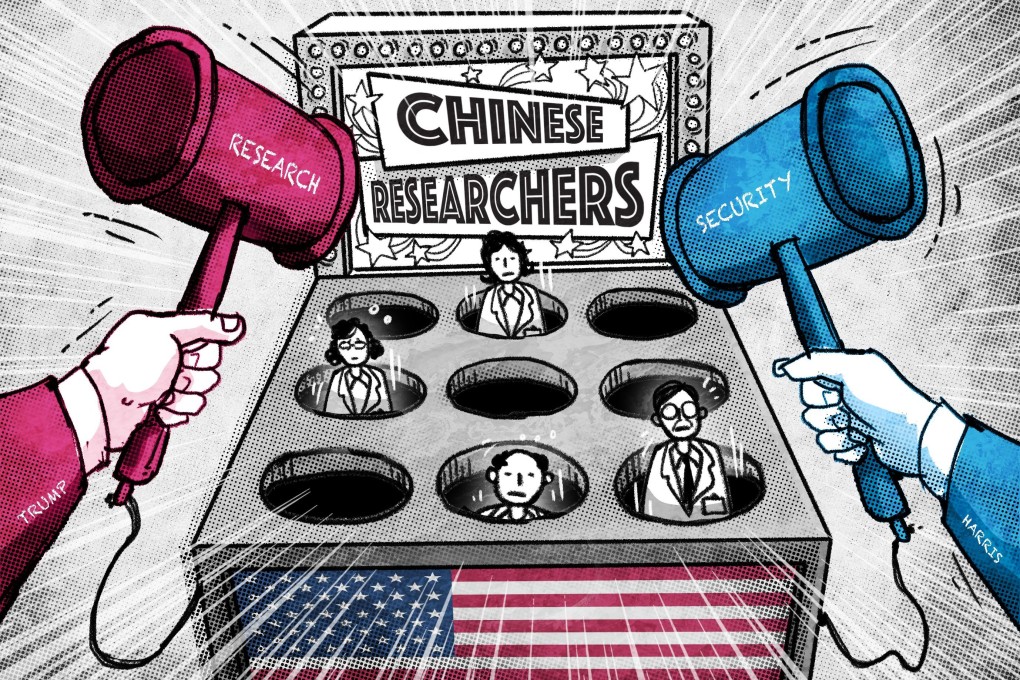Could growing Washington consensus on China tech curbs backfire on the US?
Visa curbs and an increasingly hostile environment could drive away researchers of Chinese origin, slowing America’s own scientific development

The growing support across the political divide in Washington for curbs on China’s access to advanced technology could accelerate a brain drain of scientific talent that ultimately hurts the United States and benefits its rival, according to some American researchers.
Both Trump and his successor Joe Biden stepped up US efforts to limit China’s access to advanced to advanced technology while in office – driving Beijing to push for self-reliance in the scientific and hi-tech spheres.
Emmie Hine, a research associate at the Yale Digital Ethics Centre, said both potential administrations would be hawkish on China when it comes to weakening its development capacity.
“The [Democratic] platform commits to being ‘tough but smart’ on China and wants to avoid ‘a costly spiral to conflict’ and identify areas to work together, including in AI guardrails. The [Republican] platform favours disengagement and decoupling, which is likely to ratchet up tensions.
“But I am more optimistic about a Harris administration being committed to productive engagement,” said Hine, who researches the ethics and governance of emerging technology.
Both administrations are expected to continue to promote domestic chipmaking, but Hine said a Trump administration might reduce or eliminate visas for Chinese students and researchers, hamstringing US development in areas such as AI.